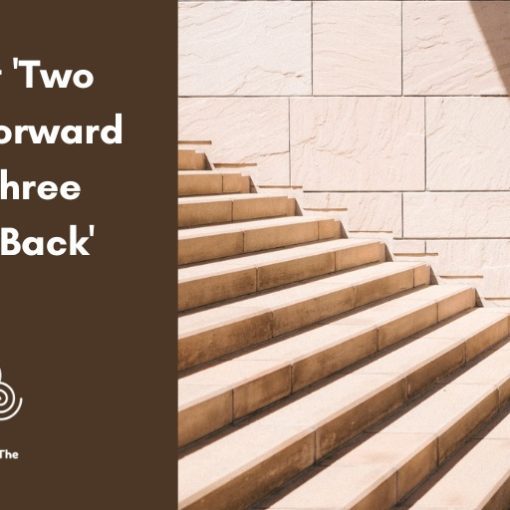We think our lives have a strength to them, but remove a few Jenga pegs, experience a shock, and we can easily topple to the stress. So we build with each other and find new resilience.
A couple of mornings ago, my son said ‘Nice Jenga Dad.’ I was puzzled, for a moment then I realized he was talking about my dishwashing Jenga. 
Jenga is a stacking game using perfectly shaped wooden blocks. Then one by one, a peg is removed and placed on the top of the tower until it topples over. It’s a game of skill and engineering.
Since the kids were little, we generally wash the dishes and stack them in the dish rack to be put away the next morning.
Now some of those dishwashing Jenga stackings can be mighty impressive. Its an art form to squeeze in a pot or two. Chopsticks can be poked in anywhere, but a large serving platter requires courage, wisdom, and a certain level of creativity.
Fortunately, where we live, we don’t have earthquakes or many large trucks passing by. So the Jenga stays secure.
Your Jenga
We all have a Jenga—a way we stack the various parts of our lives.
The pegs might be who cooks the meals, washes the dishes, pays the bills. What route you take to work. When you clean your teeth, wash your clothes and the way you stack your groceries. You have preferences, likes, dislikes.
Relationship stress with other Jengas also plays a part. How secure, or insecure, those Jengas nearest to you impacts you (pun intended!).
You stack it all up, and there is your daily/ weekly life. Mostly it’s pretty secure. It can stand a bit of a wobble, a slight knock here and there.
But under pressure
But under pressure, one’s Jenga can take a topple.
I once knew a man, John, whose life Jenga at one stage was a pile of psychotic pegs thrown about in an Inpatient Mental Health Unit.
He had been going well in life. Wife, kids, job, and supportive church life. Loved and respected by all. Sure there were times when he had some thoughts and ideas that seemed to be a bit out of the normal. His wife had some concerns, but then things got back to normal.
Then he lost his job. He got made redundant and found he wasn’t needed anymore. The fragile Jenga began to move.
It swung, swayed, and eventually crashed. He started to lose sleep. He walked and paced. His sentences didn’t seem to make sense, but he thought he was perfectly OK.
‘Nothing wrong with me,’ he said with grandiose gestures, but there was, and everyone could see it.
He was unwell.
It could happen to you.
We like to think we are invincible, that we can handle anything that comes our way. WRONG.
We are all particulates of clay. Our Jenga isn’t perfect, and everyone reacts to stress in different ways.
For some, when placed under a huge stress load, it might be high blood pressure, stomach ulcers, headaches. For others, it could be sleep disturbances, anxiety, depression, and even psychotic breaks.
We are fearfully and wonderfully made, but we are also fragile in our clay.
Knowing your Jenga
If I was to sit down with you and a pile of Jenga pegs, what words about you would you write on each peg. 
-
- Job
- Relationships
- Finance
- Faith
- Family
Now, let’s break those categories down even further.
The pegs become
-
- Work goals
- Relationship with boss
- The stress of getting to work
- Worry about a daughter and her boyfriend
- Payment of power bill
and many other pegs.
As you see, the tower grows higher and higher and increasingly fragile. For the most part, you have it all together. Life is good, it’s manageable. But then a knock, a wind, a brush with someone else’s fragile Jenga, and you begin to wobble.
A severe enough shake, such as the death of a loved one or a loss of a job, and the tower can shake violently and even crash.
It’s then that the tower, with the help of others, has to be rebuilt. We pick up the pieces, examine them, and craft them into the new rebuild.
It’s an ‘And next to them’ project.
Nehemiah and the Jenga builders
‘Nehemiah and the Jenga Builders’ sounds like an 80’s rock band, doesn’t it, but they are more a recovery group.
In my book ‘Broken to built,’ I share devotionals about how an entire city rebuilt their Jenga walls. It’s the story of Nehemiah and the rebuilding of the walls of Jerusalem.
Next to them Rephaiah son of Hur, ruler of half the district of Jerusalem, made repairs. 10 Next to them Jedaiah son of Harumaph made repairs opposite his house; and next to him Hattush son of Hashabneiah made repairs. Nehemiah 3:9,10
It was a Jenga wall recovery movement of thousands of ‘Next to them’ relationships.
Who are you ‘next to.’
Every one of us is standing next to someone’s Jenga and they next to ours.
Are we helping them to be secure? Are we working on knowing ourselves and our vulnerabilities to stress? Do we have good strategies in place for reaching out and getting help when it’s needed?
Our mental health is probably more fragile than we would like to admit to, so we need to build ‘and next to them’ relationships that foster resilience for when the storms come.
John, with the help of others, recovered and rebuilt his Jenga. He now had a more honest and grounded reality in his life. He understood his vulnerabilities and accepted them. His faith was less ‘Woo woo’ and more earthy and honest. He had to review many of his beliefs about God and faith. As he did, he began to become more balanced, stable, and secure.
[click_to_tweet tweet=”Mental Health is … knowing your Jenga and the Jenga of others. How can you build a strong structure? #mentalhealth #stress #resilience #recovery” quote=”Mental Health is … knowing your Jenga and the Jenga of others. How can you build a strong structure?”]
We think our lives have a strength to them, but remove a few Jenga pegs, experience a shock, and we can easily topple to the stress. So we build with each other and find new resilience.
Quotes to consider
- Assumptions are what make the world go round, but they can also create hell-on-earth until they are exposed and carefully examined. D. Riddell
- Strength is not the absence of vulnerability. Strength is knowing what your weaknesses are and working with them. Terrence Real
- The more you know yourself, the more patience you have for what you see in others. Erik Erikson
Questions to answer
- What are various Jenga pegs in your life?
- Where are you vulnerable?
- Some structures need to be broken down in order to be rebuilt. Think of an example where this has happened for you?
Further reading
How to Build an Inner ‘Bulldog’ Resilience for your Mental Health
Barry Pearman
Image cc: John Moeses Bauan





